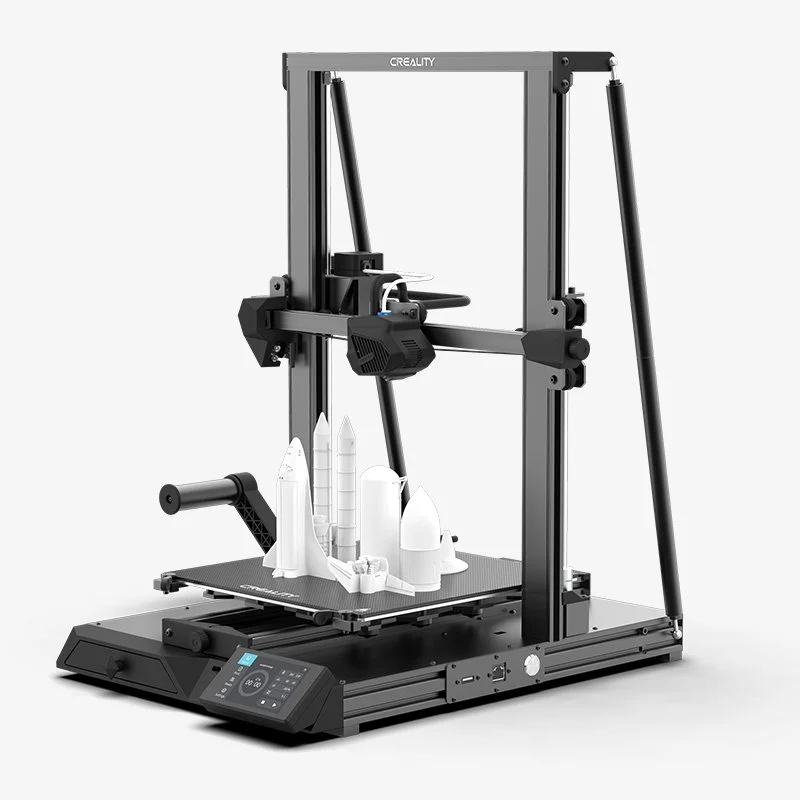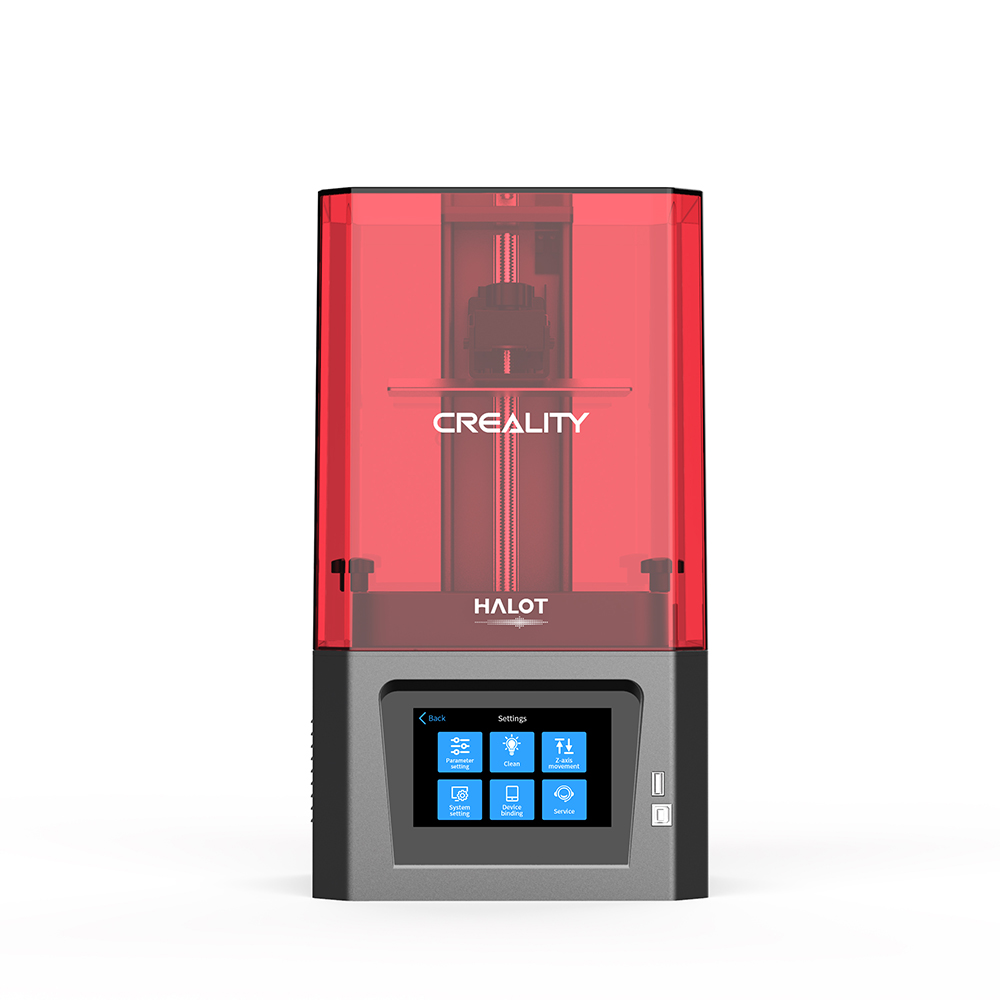Compare CR 10 Smart vs Halot One
Comparison between the best 3D printers
Choose the best 3D printer at the best price. The cheapest 3D printers are here.
Buy a 3D printer here with 3D Fila.
 |
 |
|
| Model | CR 10 Smart[BUY CR 10 Smart] |
Halot One |
| Printing Material | Filament | Resin |
| Buy Filament for Creality 3D CR 10 Smart | Buy Resin forCreality 3D Halot One | |
| Estimated price | $520,00 | $250,00 |
| Manufacturer | Creality 3D | Creality 3D |
| Release Year | 2021 | 2021 |
| Print Volume [mm] | 300x300x400 | 127x80x160 |
| Printer Size [mm] | 578x522x648 | 221x221x404 |
| Weight [kg] | 14 | 7,1 |
| Power Loss Recovery | YES | NO |
| Maximum Resolution [mm] | 0,1 | 2k |
| Processor | Processador ARM STM32F103 RET6 CPU | |
| Display | Display touchscreen 4,3'' | |
| Power Supply | 110/220V / 350W | |
| Connectivity | SD / USB / Wi-Fi | |
| Operating systems | Windows, Mac, Linux | Windows, Mac, Linux |
| Date of registration in the system | 2022-11-04 | 2022-10-11 |
| Release date | 2021 | 2021 |
| Extra features | The Creality CR-10 Smart stands out for its stability, with a dual Z axis and additional supports, minimizing oscillation in high prints. Its redesigned hotend offers better cooling, expanding the range of usable materials. The glass printing surface, with automatic leveling, facilitates the adhesion and removal of parts. Includes Wi-Fi / LAN connection and automatic shutdown after printing, adding convenience and efficiency. It features an effective single-gear extruder and an intuitive touchscreen interface, despite some firmware issues. | Crealitys Halot-One printer stands out with several innovative features. It has a high-resolution touchscreen, providing an intuitive and responsive interface. Its quiet printing capability is remarkable, ideal for environments where noise is a concern. Assembly and setup are simple, with automatic functions facilitating quick start. Among its features, remote monitoring and adjustments via the Creality Cloud app stand out, simplifying remote print management. Replacing the FEP in the resin vat is easy, and the printer even includes extra FEP sheets. Top cover removal detection increases safety by automatically pausing printing. In addition, its integral light source promises high uniformity, optimizing print quality. |
| Support for multiple colors and materials (AMS and CFS) | NO | NO |
Notes * |
||
| Cost-benefit | 6 / 10 | 8 / 10 |
| Hardware | 2 / 10 | 0.5 / 10 |
| Tela | . | . |
| Print volume | 4 / 10 | 3 / 10 |
| Performance | 2 / 10 | 9 / 10 |
| [BUY CR 10 Smart] |
Conclusion |
| In comparing the Creality CR-10 Smart and the Halot One, the choice ultimately hinges on the specific needs of the user and the intended application of the printer. The CR-10 Smart is positioned as the more robust option, with a larger print volume and superior build quality features that ensure stability and precision during large prints. Its additional capabilities, including power loss recovery and compatibility with a wider range of materials, make it an excellent choice for users seeking versatility in their printing projects. Although more expensive, its advanced features and reliable performance offer a solid value for those who prioritize print quality and production scale. Conversely, the Halot One shines as an economical choice, boasting innovative features and user-friendly elements that cater to beginners and casual users. Its high-resolution touchscreen, quiet operation, and ease of assembly are significant advantages, particularly for those in need of a straightforward and efficient printing experience without the bells and whistles of higher-end models. The price point and performance capabilities yield a better cost-benefit ratio for users with simpler printing needs or those looking primarily at resin printing. In conclusion, for professionals or serious hobbyists requiring flexibility and larger print capabilities, the CR-10 Smart stands out, albeit at a higher price. Meanwhile, for entry-level users or those focused on detail rather than size, the Halot One offers excellent value and functionality for its cost. The decision should consider not only price but also the specific requirements of the user’s projects and long-term goals in 3D printing. |

